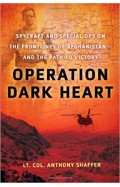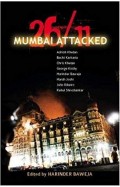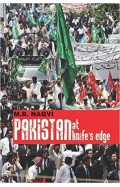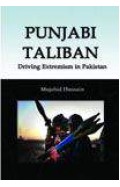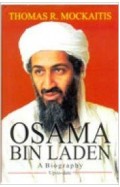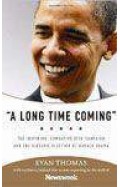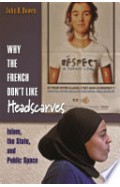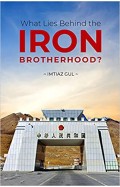- Home
- Non Fiction
- Politics & Current Affairs
- Justice at War: The Men and Ideas that Shaped America's War on Terro
Justice at War: The Men and Ideas that Shaped America's War on Terro
By: David Cole
-
Rs 8,091.00
- Rs 8,990.00
- 10%
You save Rs 899.00.
Due to constant currency fluctuation, prices are subject to change with or without notice.
We are offering a high discount on this book due to its “SLIGHTLY DAMAGED” conditionHow did America become a nation that tortured prisoners, spied on its citizens, and gave its president unchecked powers in matters of defense? Has justice been the greatest casualty of the war on terror?After the attacks of September 11, 2001, the Bush administration swiftly began to rethink its approach to national security. In a series of memos and policy decisions, many top secret and only made public much later, the administration’s lawyers dismissed the Geneva conventions as “quaint,” justified the torture of suspected terrorists, argued that the president in his capacity as commander in chief was bound by no laws in defending the nation at home and abroad, and approved a domestic surveillance program that flagrantly violated US law.In Justice at War, David Cole takes a critical look at the men who made the decisions that shaped America’s war on terror. After September 11, Attorney General John Ashcroft aggressively expanded federal law enforcement powers. John Yoo, who served in the Justice Department’s Office of Legal Counsel, drafted some of the most controversial memos justifying torture. David Addington, Dick Cheney’s counsel, argued for virtually unlimited presidential power. Alberto Gonzales, Bush’s counsel, seemed willing to defend the president’s view on any issue. |
We are offering a high discount on this book due to its “SLIGHTLY DAMAGED” conditionHow did America become a nation that tortured prisoners, spied on its citizens, and gave its president unchecked powers in matters of defense? Has justice been the greatest casualty of the war on terror?After the attacks of September 11, 2001, the Bush administration swiftly began to rethink its approach to national security. In a series of memos and policy decisions, many top secret and only made public much later, the administration’s lawyers dismissed the Geneva conventions as “quaint,” justified the torture of suspected terrorists, argued that the president in his capacity as commander in chief was bound by no laws in defending the nation at home and abroad, and approved a domestic surveillance program that flagrantly violated US law.In Justice at War, David Cole takes a critical look at the men who made the decisions that shaped America’s war on terror. After September 11, Attorney General John Ashcroft aggressively expanded federal law enforcement powers. John Yoo, who served in the Justice Department’s Office of Legal Counsel, drafted some of the most controversial memos justifying torture. David Addington, Dick Cheney’s counsel, argued for virtually unlimited presidential power. Alberto Gonzales, Bush’s counsel, seemed willing to defend the president’s view on any issue. |
Enemy Aliens Double Standards and Constitutional Freedoms in the War on Terrorism
By: David Cole
Rs 375.00 Rs 500.00 Ex Tax :Rs 375.00
Justice at War: The Men and Ideas that Shaped America's War on Terro
By: David Cole
Rs 8,091.00 Rs 8,990.00 Ex Tax :Rs 8,091.00
Zubin Mehta: A Musical Journey (An Authorized Biography)
By: VOID - Bakhtiar K. Dadabhoy
Rs 892.50 Rs 1,050.00 Ex Tax :Rs 892.50
Myths Illusions and Peace: Finding a New Direction for America in the Middle East
By: Dennis Ross
Rs 766.50 Rs 1,095.00 Ex Tax :Rs 766.50
Operation Dark Heart: Spycraft And Special Ops On The Frontlines Of Afghanistan And The Path To Victory
By: Anthony Shaffer
Rs 1,697.50 Rs 3,395.00 Ex Tax :Rs 1,697.50
Anna Hazare: The Face Of Indias Fight Against Corruption
By: Pradeep Thakur
Rs 255.00 Rs 300.00 Ex Tax :Rs 255.00
How To Win A Cosmic War God Globalization And The End Of War
By: Reza Aslan
Rs 625.50 Rs 695.00 Ex Tax :Rs 625.50
A Long Time Comming: The Inspiring Combative 2008 Campaign And
By: Evan Thomas
Rs 597.50 Rs 1,195.00 Ex Tax :Rs 597.50
No similar books from this author available at the moment.
Why the French Don't Like Headscarves - Islam, the State, and Public Space
By: John R. Bowen
Rs 1,782.00 Rs 1,980.00 Ex Tax :Rs 1,782.00
Zubin Mehta: A Musical Journey (An Authorized Biography)
By: VOID - Bakhtiar K. Dadabhoy
Rs 892.50 Rs 1,050.00 Ex Tax :Rs 892.50
Enemy Aliens Double Standards and Constitutional Freedoms in the War on Terrorism
By: David Cole
Rs 375.00 Rs 500.00 Ex Tax :Rs 375.00
Justice at War: The Men and Ideas that Shaped America's War on Terro
By: David Cole
Rs 8,091.00 Rs 8,990.00 Ex Tax :Rs 8,091.00












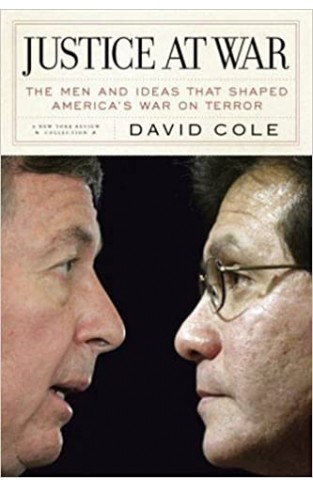
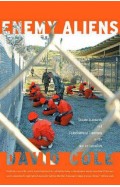
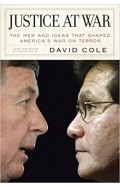
-120x187.jpg?q6)






